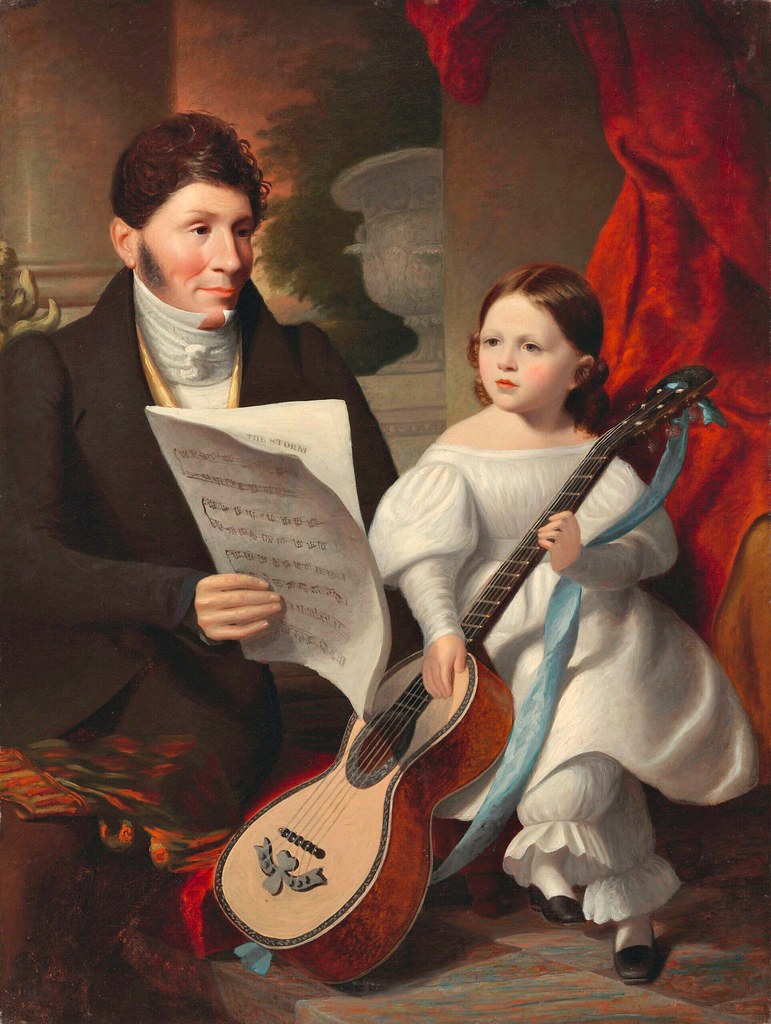Joseph Ignaz Schnabel (1767-1831)
- Quintetto concertante in C-Dur, IJS 1
Performers: Siegfried Behrend (1933-1990, guitar); Zagreb String Quartet
---
German church musician and composer. The son of a Kantor, he attended
the Gymnasium in Breslau and sang in the Vincentiuskirche, then training
as a teacher. He later attracted attention for the musical attainments
of his pupils as a rural schoolmaster in Paritz where he taught from
1790. In 1797 he was appointed organist of St Clara in Breslau and
during the same period violinist in the orchestra of the Vincentius
kirche and the theatre orchestra, which he also often conducted. His
later appointments included Kapellmeister of the cathedral (1805),
director of the Richter winter concerts (1806) and the Montags- und
Freitagsgesellschaft (1810), director of music at the university (1812),
teacher at the Catholic seminary and director of the Royal Institute of
Church Music, which he helped to found. At a time when sacred music was
at a low ebb in south Germany, before the impact of the Cecilian
Movement, Schnabel did much to rejuvenate and improve it through his
many compositions and performances. In the secular arena, where he was
equally active as a composer, he made an outstanding contribution to
Breslau’s musical life, introducing not only earlier Classical
symphonies and choral works (including Haydn’s Creation in 1800) but
those of contemporaries such as Spohr and Romberg. His achievements were
widely known, for example by Beethoven, whose ‘Exaudi Domine’ Schnabel
had copied for cathedral performance. Schnabel’s significance for the
musical life of Breslau, the music of the Catholic cathedral and musical
education of Schlesia is detailed by Hoffmann. His own music includes
eight masses, six vespers and litanies, 22 graduals, offertories, hymns
and stations, as well as many songs and sacred and secular partsongs and
choruses, some for male quartet, military marches and pieces for wind, a
clarinet concerto and a quintet for guitar and string quartet. Still
performed is his ‘Transeamus usque Bethlehem’ for choir and orchestra. A
large amount remains in manuscript (see Guckel for complete listing).
Other musically active members of Schnabel’s family include his brother
Michael Schnabel (1775-1842), a piano manufacturer whose instruments
were valued by virtuosos such as Liszt and Hummel, and whose sons Julius
and Carl (later a composer) continued his business; and his sons Joseph
(1791/4-?), an organist and composer, and August (1795-1863), a
conductor and music educator who succeeded his father at the Catholic
seminary in Breslau.

Cap comentari:
Publica un comentari a l'entrada